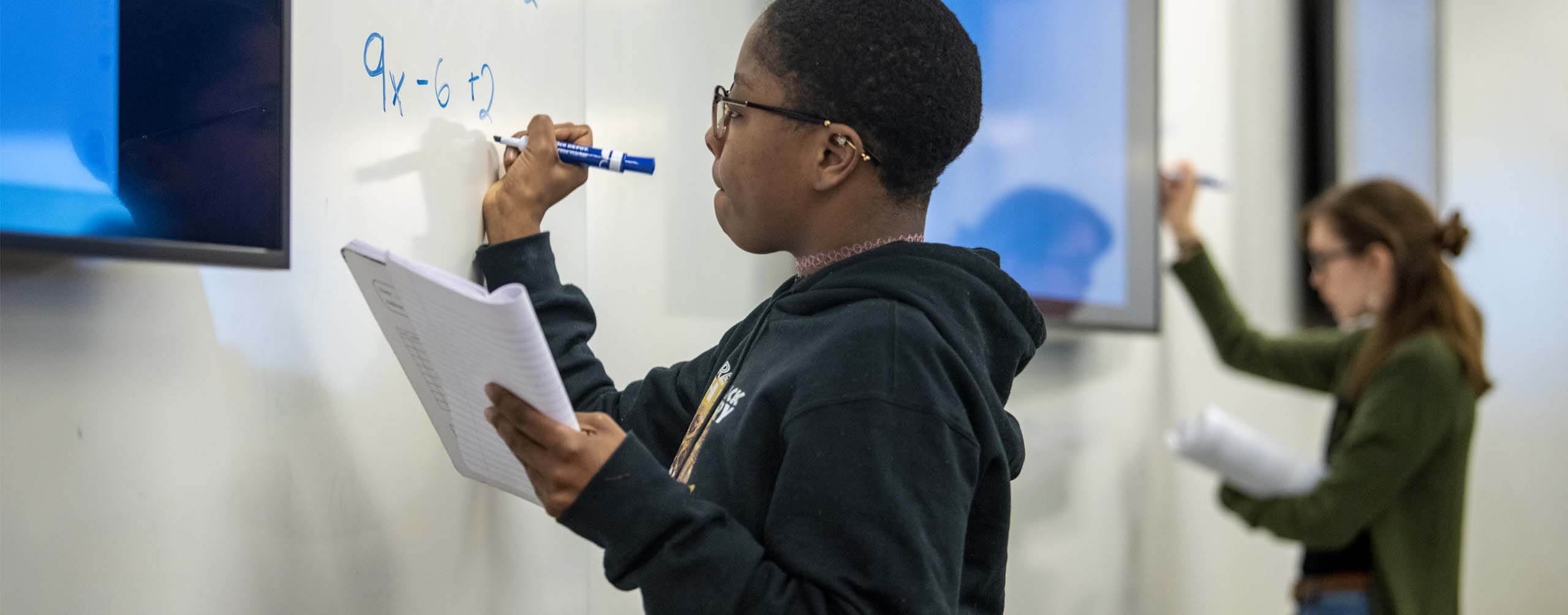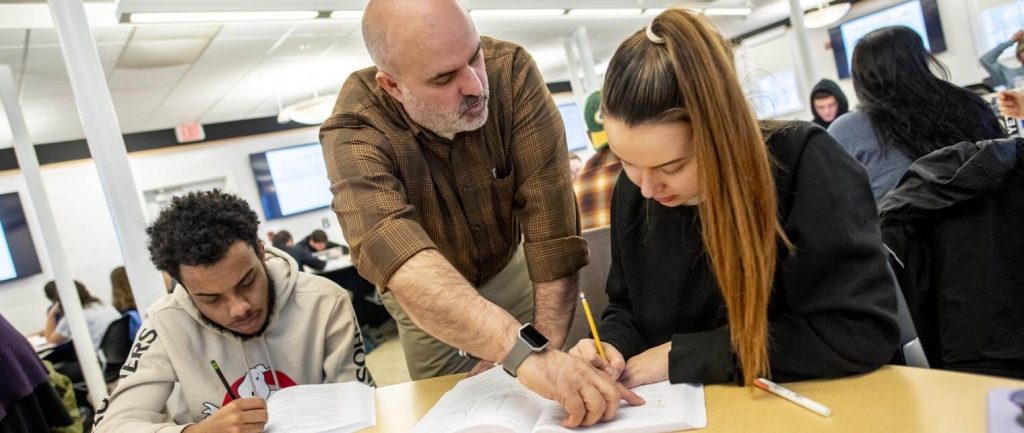
Mathematics
College of Liberal Arts and Sciences
Mathematicians and those with mathematical inclination are inherently problem solvers. Through course work and individual faculty-student work, the Department of Mathematics and Statistics offers the mechanism to develop and refine problem solving skills and creative thinking skills that are vitally important for the demands of the job market and society in general.
The Department of Mathematics and Statistics enables students to develop the skills in analytical and logical reasoning needed to succeed in today’s world, where technology is an ever-expanding part of everyday life. We offer opportunities for students to build a strong foundation in core mathematical areas and a number of specializations to prepare our students for fulfilling careers. Our faculty bring their research into the classroom, allowing students to see many of the ways in which mathematics is used in different fields. Beyond our introductory classes, many of our classes are small, allowing for engaging interactions between the faculty and students.
We offer several tracks for our students to facilitate satisfying and rewarding careers or continuing graduate studies. These tracks include statistics, education, pure math and applied math.
Mathematics-based jobs — mathematician, statistician and actuary — have routinely occupied the top few slots in recent studies of the “best jobs” as reported in the Wall Street Journal over the past several years. In 2014, mathematician ranked No.1. A degree in mathematics prepares students for a wide variety of careers, including statistician or research scientist in a government laboratory or just about any type of company, including pharmaceutical, manufacturing and technology, research programmer, risk analyst and actuarial scientist for financial or insurance companies, and educator.
Proficiency with mathematics and analytical reasoning is a highly desired skill, especially when combined with a background in a secondary field, such as business, computing or a branch of science. A mathematics degree combined with training (such as a minor or second major) in another field is especially attractive to employers, as it indicates stronger quantitative skills than a typical practitioner within that other field, and an ability to see broader links between technology and society.
Mathematics
College of Liberal Arts and Sciences

Math Lab
The Math Lab is an on-campus resource where students can study and get help on math assignments.
